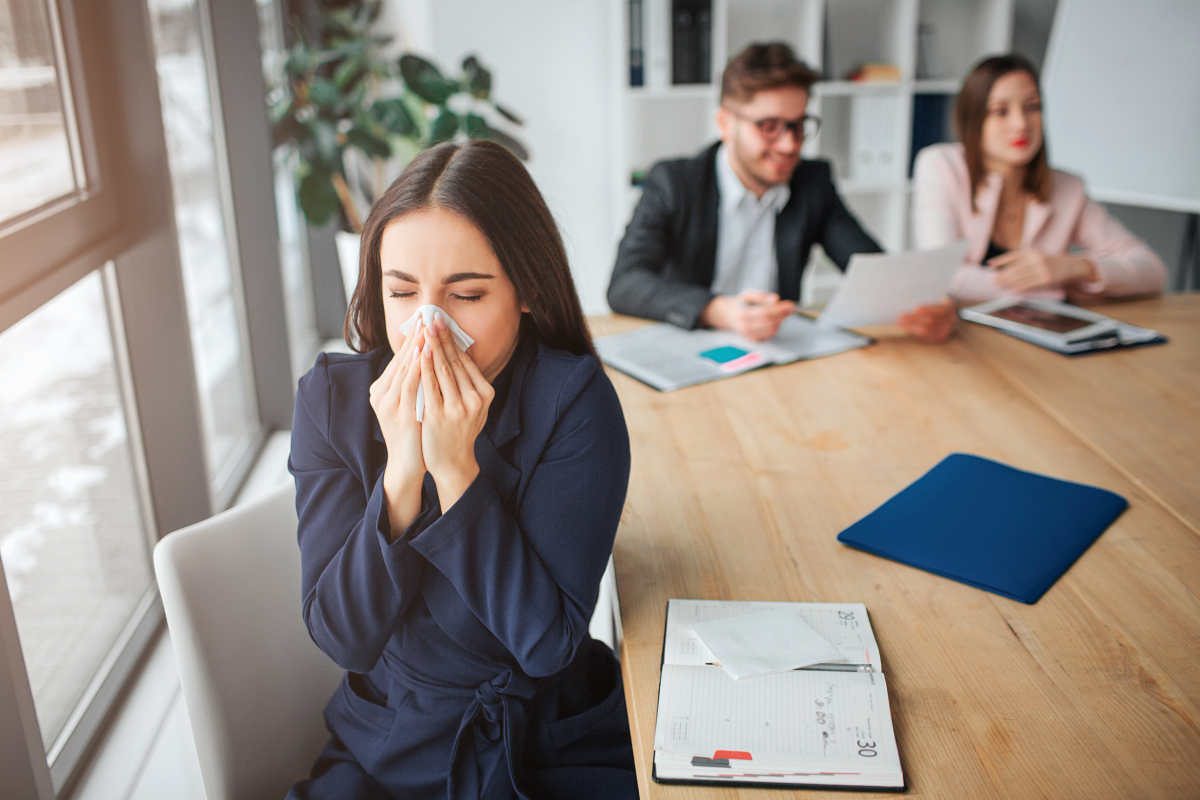“My colleague caught a cold,” my friend wrote. “Are you going to make yourself home tomorrow?” I asked. “It doesn’t work,” she writes. Classic: The boss doesn’t like working from home very much.
With the end of the summer holidays, the cold season begins. The first small wave in my environment was caused by the stabilization of preschool and the start of school. A few weeks of calm followed, and now the first ones are in quarantine while a surprisingly large number recover from a severe cold.
We get sick because we don’t treat our bodies well in the fall. The cold has only an indirect relation to it; It is primarily heating that dries out the mucous membranes and makes us more susceptible to viruses. Additionally, many people are spending more time indoors, creating small clusters of viruses.
If you ask people without children, of course parents are to blame because they carry viruses from daycare centers to the company. If you ask parents, it’s the fault of other parents who bring their children to daycare with a cold. In addition, in a very special case, they have no other choice, because today they have to work (a crazy phenomenon known as the “working day”).
If you ask teachers, they point to the fact that according to state regulations, children with mild, normal colds should go to daycare so everyone can build a good immune system. Which is fairly convincing from a medical point of view.
When it comes to colds, it’s always someone else’s fault. This is true on a realistic level: a patient went out among people with a cold and infected others. It is enough for very dependent people to take the subway. A sense of responsibility and a high workload also prompt people to come to work, according to software company Personio. For some, this is a culture of high performance, others are simply afraid of losing their job. You must be able to bear the cause.
Realistically, we must remember that people do not create viruses inside themselves to annoy others. The “patient zero” phenomenon rarely occurs in nature. In practical terms, we carry ever-changing viruses around the world and keep them alive.
We will not end the common cold. Viruses are very versatile and are very willing to travel for this. By the way, they have a function: childhood colds also train the body against allergies.
But we can do something to slow the waves of colds. Corporate flu is a mirror of society: how free are people to make their own decisions? Are they allowed to isolate if they are sick?
If you believe the KPMG survey, the majority of managers expect that home offices will no longer exist within three years. Promotions and salary incentives are intended to attract employees to headquarters.
Editorial recommendations
But a company interested in ongoing operations jobs should allow home offices. The obstacle must be low. Even demanding a yellow ticket helps spread viruses. What sane person goes to the doctor’s office with a cold? The federal government has announced that sick leave by telephone will be possible again at the beginning of the cold season. Now maybe it will be more like January.
But employees only go to the doctor when there is no other option, and that’s when the damage is done.
Let’s imagine rules for a better world:
- If you have a cold, notify your company and work from home – if your job allows it.
- If a person does become ill, a sick note is given at a reduced rate by telephone.
- This keeps the cold away and protects the team.
Colds are not a sign of weakness or lack of performance. Colds are part of human life. They will not be eliminated. However, it can be controlled on a small scale. The high level of illness is, at least in part, a failure of leadership. Finally, we will get the cold winter we deserve. Companies have creative ability.
Everyday office life: Tweets revealing the daily craziness

“Total coffee aficionado. Travel buff. Music ninja. Bacon nerd. Beeraholic.”









More Stories
Coral Seeding: Artificial Insemination Makes Coral More Heat Tolerant
Fear, Anger, and Denial: How People Respond to Climate Change – Research
LKH Graz: Using radiation to combat heart arrhythmias